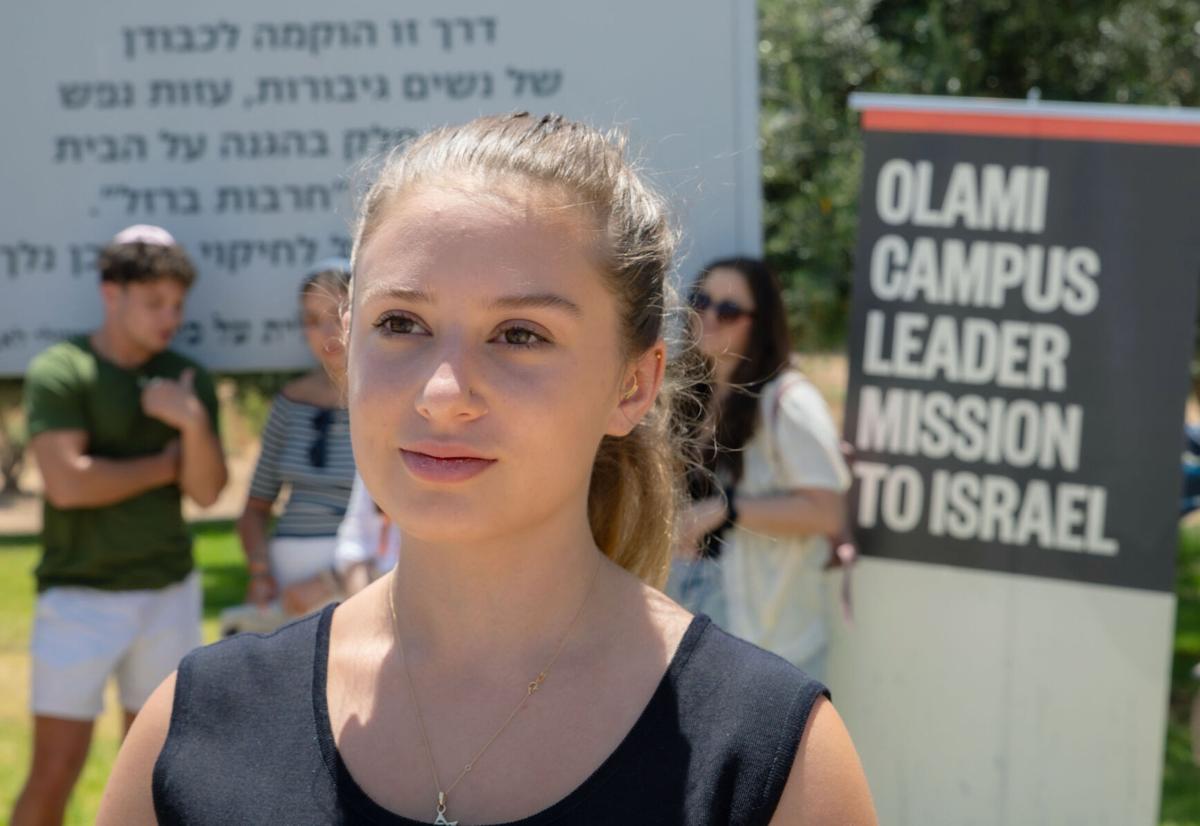After facing growing antisemitism on campus, one University of Arizona student flew to Israel to meet with Prime Minister Benjamin Netanyahu and discuss the role Jewish students on college campuses play during the Israel-Gaza crisis.
Talia Grace Boyle, who will be a junior at the UA this fall, said that before the Hamas terror attacks in Israel on Oct. 7 last year, she “never encountered anything” antisemitic on campus. That all changed, she said, “immediately” afterwards.
“I began to be in a lot of fear every single day,” she said. “It’s a choice of mine whether or not I put my Jewish star on in the morning, and every morning now that I do, I feel like I’m putting a target on my back.”
According to Hillel International, the UA is in the top 60 of U.S. schools with the most Jewish students. Nine percent of undergraduate students and 4.7% of graduate students are Jewish.
Because of her involvement in Olami, a global network for young Jews, Boyle was invited with a small group to Israel to meet with Netanyahu and other Israeli elected officials and leaders.
She said one official, after hearing the students’ testimonies, raised his hand and said he would get them whatever they needed: “I will find a way to fund it,” she said he told the students.
“At this time, we have different initiatives and programs we are working towards,” Boyle said of potential funding from the Israel government, adding that details aren’t set.
Of meeting Netanyahu, she said, “There isn’t just a battle on the battlefield, there’s a battle all around the world. We live in fear every day. It felt good that someone who has that much of an influence on the entire world cares about us.”
In a clip released on the X (formerly Twitter) account of the Israeli prime minister, Boyle is seen telling Netanyahu that “someone I believed to be my friend at the University of Arizona messaged me on (social) media saying that ‘Hitler did not finish the job, now someone is doing it for him’.”
She told the Arizona Daily Star that the “dehumanization” of Jews is deeply affecting her.
When she put up a menorah in her window to celebrate Hanukah, she said, a neighbor in her apartment put up a “stop the genocide” sign in response, something that Boyle said made her feel “targeted.”
When asked about the contentions of some activists that Israel is committing genocide against Palestinians in its war in Gaza, Boyle said that “politically, I am not trying to create any hate,” and that “the issue of antisemitism is not political.”
Boyle said she “tries to stay off main campus these days” out of fear.
The pro-Palestinian encampments at the UA this spring, she said, didn’t help. “It was a pure demonstration of misinformation,” Boyle contended. “Nothing I saw in the encampment was factual.”
Though she was initially pleased with UA President Robert C. Robbins’ first statement condemning antisemitism after the Oct. 7 attacks, she was “confused” by the university’s response to the encampments.
The first encampment, the night of April 30 through the early morning of May 1, was not broken up until after 2 a.m., despite UA policy stating that camping activities on campus must end by 10 p.m.
“It really felt like the loud majority, louder than the 7% of Jews on campus, it felt like they were getting what they wanted,” Boyle said. “It felt like the school’s fear of controversy kind of ruled what was happening on campus.”
Boyle said she thinks the encampment lasted until past 2 a.m. because UA officials were “fearful” of potential controversy and media attention in breaking the camp up.
But UA spokesperson Mitch Zak pushed back on that assertion in a statement to the Star.
“As it relates to the assertion that we had a late response to the encampments because of a fear of optics, that’s not correct,” Zak said. “Public safety is paramount and the decisions and timing of the university’s actions relative to the encampment was driven solely by the desire to deescalate.”





